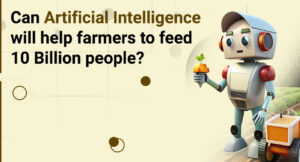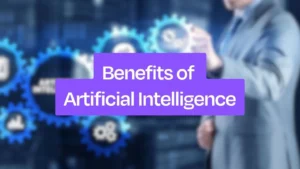Introduction
AI, characterized by machines mimicking human intelligence, has evolved into a transformative force across industries, reshaping operations and fostering innovation.
1. Definition of Fake Intelligence
AI alludes to the recreation of human insights forms by machines, enveloping errands such as learning, thinking, problem-solving, recognition, and decision-making.
2. Significance of AI Applications
AI applications hold colossal noteworthiness due to their capacity to improve proficiency, precision, and efficiency, driving to taken a toll investment funds and progressed outcomes.
3. AI in Healthcare
a. Restorative Imaging
AI upgrades therapeutic imaging by helping in diagnostics, identifying irregularities, and encouraging early illness discovery through progressed calculations and picture analysis.
b. Sedate Discovery
AI speeds up sedate disclosure forms by analyzing endless datasets, recognizing potential medicate candidates, anticipating sedate intuitive, and streamlining investigate efforts.
c. Personalized Medicine
AI empowers personalized pharmaceutical by analyzing understanding information, hereditary profiles, and treatment reactions to tailor treatments, optimize results, and move forward quiet care.
4. AI in Finance
a. Extortion Detection
AI calculations distinguish false exercises, analyze designs, and hail suspicious exchanges in genuine time, defending budgetary educate and customers.
b. Algorithmic Trading
AI-driven calculations execute exchanges based on showcase patterns, information investigation, and prescient modeling, optimizing venture techniques and relieving risks.
c. Client Service
AI-powered chatbots and virtual associates improve client benefit by giving moment back, settling inquiries, and advertising personalized experiences.
5. AI in Transportation
a. Independent Vehicles
AI empowers independent vehicles to explore streets, distinguish deterrents, and make real-time choices, revolutionizing transportation with upgraded security and efficiency.
b. Activity Management
AI optimizes activity stream, diminishes blockage, and makes strides transportation foundation through prescient modeling and keen activity control systems.
c. Coordinations Optimization
AI streamlines coordinations operations, optimizing courses, overseeing stock, and anticipating request, driving to taken a toll investment funds and made strides conveyance efficiency.
6. AI in Education
a. Personalized Learning
AI conveys personalized learning encounters by adjusting substance, evaluations, and educating strategies to person understudy needs, improving engagement and learning outcomes.
b. Reviewing Automation
AI mechanizes evaluating errands, giving moment input, evaluating understudy execution, and liberating up educators’ time for personalized instruction and support.
c. Versatile Tutoring
AI-powered mentoring frameworks adjust to students’ learning pace, inclinations, and qualities, advertising customized learning ways and making strides instructive outcomes.
7. Moral Considerations
While AI offers transformative benefits, moral contemplations such as information security, calculation inclination, work uprooting, responsibility, and societal affect require cautious examination and regulation.
Conclusion
The applications of AI span over healthcare, fund, transportation, instruction, and past, revolutionizing businesses, improving proficiency, and forming the future of work and advancement.







Comments are closed.